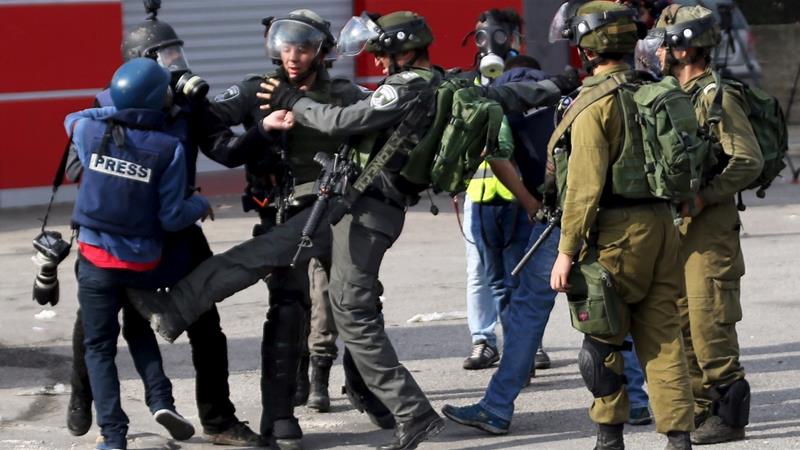
Attacks on journalists during protests risen sharply: UNESCO
Journalists attacked, arrested or killed in 21 protests between January and June of this year, UNESCO said.
The number of incidents of violence against journalists covering protests across the world has risen sharply, with police and security forces the main culprits, the United Nations cultural agency has said.
UNESCO said on Monday that it had counted 21 protests between January and June this year in which journalists were attacked, arrested or killed.
The organisation, whose role includes monitoring media developments, said in a report that the spike came as part of "a wider upward trend in the use of unlawful force by police and security forces over the last five years".
At least 10 journalists were killed during protests between 2015 and mid-2020 when there were 125 instances of attacks on, or arrests of, reporters, according to UNESCO which investigated protests in 65 countries for the report.
The reporters who died on the job worked in places including Syria, Mexico, Northern Ireland, Nigeria and Iraq.
One of the journalists killed in 2018 was Yaser Murtaja, a photographer with the Gaza-based Ain Media agency, who was shot in the stomach in the south of the Gaza Strip covering the Great Return March protests, despite wearing a flak jacket with the word "PRESS" on it.
"Hundreds of journalists around the world trying to cover protests have been harassed, beaten, intimidated, arrested, put under surveillance, abducted, and had their equipment damaged," the report said, adding that the "majority of the attacks" were carried out by police and security forces.
"Police use of non-lethal ammunition ranging from rubber bullets to pepper balls has injured dozens of journalists, with a few having been left blinded in one eye," it said.
The report also said local government officials doxxed or revealed the identities of journalists, including sharing their addresses or the names of their children.
Shutting down news outlets, blocking websites, as well as text messaging, were all methods used by authorities to stifle new reporting during protests, the report noted.
"Impunity has continued to remain the norm in recent years for attacks on the press covering protests," UNESCO said.
UNESCO said protests are often about economic injustice, government corruption, the decline of political freedoms, and growing authoritarianism, giving some governments a vested interest in preventing balanced reporting.